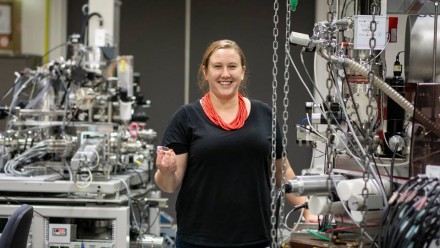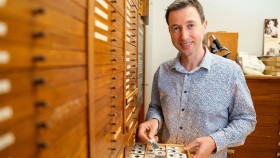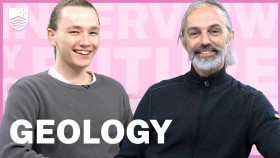Uncovering the mysteries of human behaviour by studying ancient teeth
Hannah James is teaming up with other archaeologists to uncover the mysteries of human behaviour by studying ancient teeth. For Hannah, teeth provide a window into the lifestyle of our ancestors in a way that other artefacts do not. By performing isotopic analysis on these teeth using machines like the Sensitive High-Resolution Ion Microprobe or SHRIMP at RSES, Hannah is able to track the movement of their owners throughout their lives.
‘In archaeology it’s very hard to understand mobility. A lot of it is relying on material culture but with isotopes you can look at the movements of individuals. Isotopes tell you about actual people’s stories. Teeth survive really well in the archaeological record and they tell us about childhood. Once they are formed, they never change which is really useful because childhood is something which is hard to see in the archaeological record.’
For Hannah an interdisciplinary approach has been key, applying an earth science approach to a traditionally archaeological question. This wide range of applicability is something that attracted her to the earth sciences.
‘It’s very cool because you get to go places and you get to look at some real-world big problems, that’s why I think I’ve enjoyed being here.’
But for Hannah, the benefits of her PhD at RSES extend far beyond the research side of things.
‘I’ve been fortunate to have been able to do a lot of outreach and extracurriculars during my PhD and that has been really rewarding. Your PhD isn’t just about your research, it’s about all the skills you learn during the process, communicating your research and its impact, and engaging with people outside of just your academic community.’









